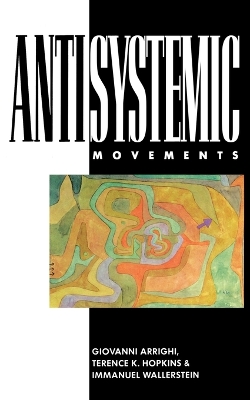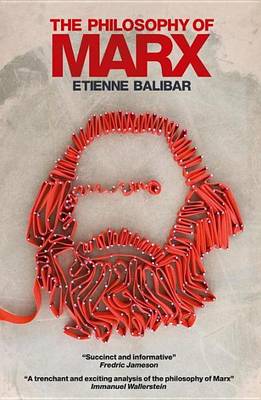Radical Thinkers
5 total works
As one of Louis Althusser's most brilliant students in the 1960s, Etienne Balibar contributed to the theoretical collective masterpiece of Reading Capital. Since then he has established himself among the most subtle philosophical and political thinkers in France. In Politics and the Other Scene Balibar deepens and extends the work he first developed with Immanuel Wallerstein in Race, Nation, Class. Exploring the theme of universalism and difference, he addresses such topical questions as European racism, the notion of the border, whether a European citizenship is possible or desirable, violence and politics, and identity and emancipation.
Anti-Systemic Movements
by Giovanni Arrighi, Terrence K. Hopkins, and Immanuel Wallerstein
Published 17 September 1989
Antisystemic Movements is an eloquent and concise history of popular resistance and class struggle by the leading exponents of the "world-systems" perspective on capitalism. Basing itself on an analysis of resistance movements since the emergence of capitalism, it shows that while some early forms were successful in their own terms, ultimately they did not impede the consolidation of the modern capitalist world-system.
The authors argue that although capitalism generated resistance right from the beginning as it displaced populations, despoiled resources and established global exploitation, until about 1848 the capitalist world-system could crush or outflank an opposition which was dispersed, localized and lacking in organization and continuity. From the mid-nineteenth century down to recent times, more adequately organized social and national movements set some limits on capital accumulation, but generally remained confined in their effectiveness to the terrain of the nation-state. Indeed, paradoxically, the successes of the "old" social movements helped to boost the power and legitimacy of states while failing to remove the sources of class conflict or to grapple with the consequences of interstate competition.
Taking the year 1968 as a symbolic turning-point, the authors argue that "new" antisystemic movements have arisen which challenge the logic of the capitalist world-system more centrally than ever before. These new movements have a different ethnic and gender composition and different ways of organizing, while their key inspirations show an increasing ability to cross national boundaries. The authors suggest that the new assertiveness of the south, the development of class struggle in the east and the emergence of rainbow coalitions in different world zones might hold out the promise of a future socialist world-system.
The authors argue that although capitalism generated resistance right from the beginning as it displaced populations, despoiled resources and established global exploitation, until about 1848 the capitalist world-system could crush or outflank an opposition which was dispersed, localized and lacking in organization and continuity. From the mid-nineteenth century down to recent times, more adequately organized social and national movements set some limits on capital accumulation, but generally remained confined in their effectiveness to the terrain of the nation-state. Indeed, paradoxically, the successes of the "old" social movements helped to boost the power and legitimacy of states while failing to remove the sources of class conflict or to grapple with the consequences of interstate competition.
Taking the year 1968 as a symbolic turning-point, the authors argue that "new" antisystemic movements have arisen which challenge the logic of the capitalist world-system more centrally than ever before. These new movements have a different ethnic and gender composition and different ways of organizing, while their key inspirations show an increasing ability to cross national boundaries. The authors suggest that the new assertiveness of the south, the development of class struggle in the east and the emergence of rainbow coalitions in different world zones might hold out the promise of a future socialist world-system.
Set 5
The modernity of racism and its relationship to contemporary capitalism.
"There is no Marxist philosophy and there never will be," Balibar contends, and yet Marx is now "more important for philosophy than ever before." This is a book both about Marx's philosophizing and about his challenge to philosophy. From the "Theses on Feuerbach" to the Letter to Mikhailovsky", Balibar applies techniques of close critical reading to reveal a multilayered Marx who is simultaneously pre- and trans-philosophical, whose writings are at times tactical interventions in philosophy, and at others significant contributions to theoretical problems. Balibar's stated aim is to show why Marx will be read in the 21st century. In presenting him as a philosopher of "eternal new beginnings",
Set 3
In this revised and augmented English translation of his 1985 work, "Spinoza et la Politique", Etienne Balibar presents a synoptic acccount of Spinoza's major works, demonstrating his relevance to contemporary political life. This study situates Spinoza's major treatises in the period in which they were written. In successive chapters, it examines the political situation in the United Provinces during Spinoza's lifetime. Spinoza's own concept of democracy developed in the "Theologico-Political Treatise", the theory of the state advanced in the "Political Treatise" and the anthropological basis for politics established in the "Ethics". Etienne Balibar is the author of "Masses, Classes and Ideas" and "Reading Capital", and co-author (with Immanuel Wallerstein) of "Race, Nation, Class".




